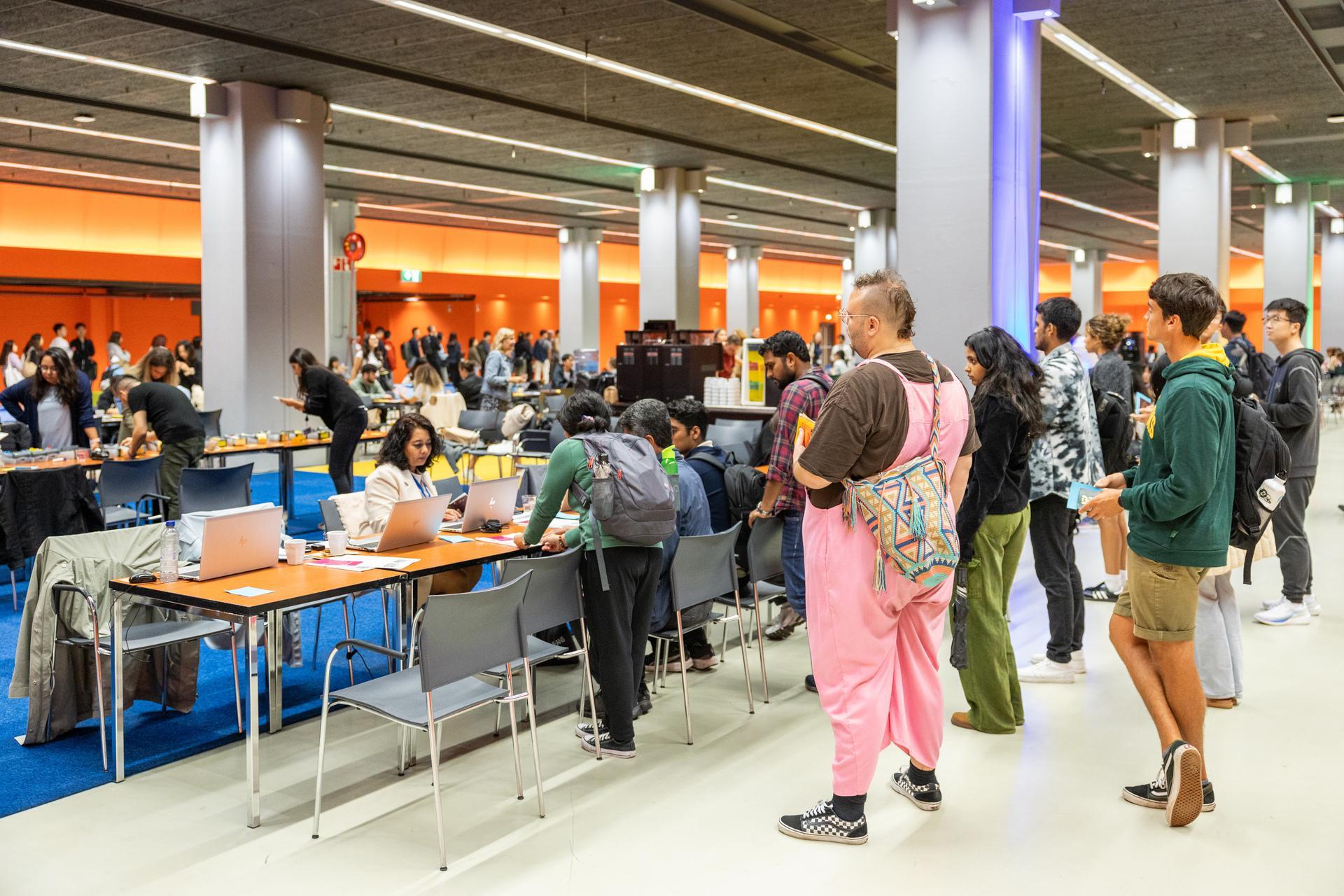Many thousands of permits at the same time
In the summer there is a large peak of applications for student residence permits. Since 2022, the IND has therefore organised several central award times in order to be of good, quick service to this group before the start of the academic year. All students come to a central location in the country to pick up their residence documents. Then many thousands of international students (about 14,000 in 2023) all pick up their residence permits on several separate days. Despite the many applications, in this way the students obtain their cards in time. This is important because without this document for example students cannot get any healthcare insurance or open a bank account. And this approach prevents other applicants from being bothered by extra pressure at the IND desks.
Together with educational institutions
Before the award days themselves, the educational institutions and the IND already perform a lot of work. The students register at the educational institutions where they want to study. The university of applied sciences or academic university already checks some of the students beforehand for whether they meet the requirements for a student residence. For example, a student must have enough money to live on. If a student does not meet all requirements, the process stops there. If the student does meet them, the educational institution has to submit an application on the student’s behalf. This initial enables us to assess and decide, usually within 2 weeks, whether a student is actually allowed to come to the Netherlands to study.
The IND works closely with the educational institutions and Nuffic, the organisation in the Netherlands for internationalisation in education. There are consultation hours and workshops for staff members of educational institutions, so that they will be able to inform the students properly, and fill in the paperwork correctly. This prevents incomplete applications as much as possible. Such cooperation is for the purpose of giving students their residence permits smoothly and quickly so that they will be able to concentrate on the studies afterwards.
Recognised sponsors
Only recognised sponsors are allowed to apply to the IND for student residence permits on behalf of students. In all cases, educational institutions that want to become recognised must have signed the Code of Conduct for International Students in Higher Education. This Code contains agreements on the education of foreign students. Besides this there are still various other requirements to be met in order to become recognised. The educational institution must, for example be reliable.
Residence permit for 5 years at most
The student residence permit is valid for the duration of the studies plus 3 months, with a maximum of 5 years and only as long as international students meet the requirements. For example, they must obtain at least 50% of their credits each year.
Working and orientation year
International students with a student residence permit are also allowed to work, but no more than 16 hours a week or only in the summer months. To do so they need a work permit from the Employee Insurance Agency (UWV). After their studies, former students can apply for a different residence permit to stay in the Netherlands for a year and seek a job or establish a business. This ‘orientation year’ is intended to encourage students to stay in the Netherlands so that the knowledge they have gained during their studies will also stay in the Netherlands.




